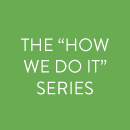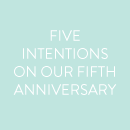Marvelous Money: Charitable Giving Accounts
I came across a book review over the weekend that reinforced a lot of things I (and you) probably already know, but that bear repeating. An excerpt: A team of researchers at the New York State Psychiatric Institute surveyed 43,000 Americans and found that, by some wide margin, the rich were more likely to shoplift than the poor. Another study… revealed that people with incomes below twenty-five grand give away, on average, 4.2 percent of their income, while those earning more than 150 grand a year give away only 2.7 percent. ‘As you move up the class ladder,’ says Keltner, “you are more likely to violate the rules of the road, to lie, to cheat, to take candy from kids, to shoplift, and to be tightfisted in giving to others.’ There is an obvious chicken-and-egg question to ask here. But it is beginning to seem that the problem isn’t that the kind of people who wind up on the pleasant side of inequality suffer from some moral disability… The problem is caused by the inequality itself: it triggers a chemical reaction in the privileged few. It tilts their brains. It causes them to be less likely to care about anyone but themselves or to experience the moral sentiments needed to be a decent citizen. Or even a happy one… In a forthcoming paper, Norton and his colleagues track the effects of getting money on the happiness of people who already have a lot of it: a rich person getting even richer experiences zero gain in happiness. That’s not all that surprising; it’s what Norton asked next that led to an interesting insight. He asked these rich people how happy they were at any given moment. Then he asked them how much money they would need to be even happier. ‘All



















